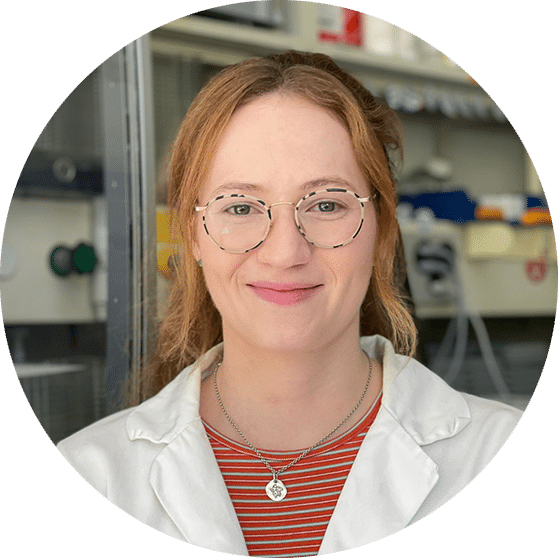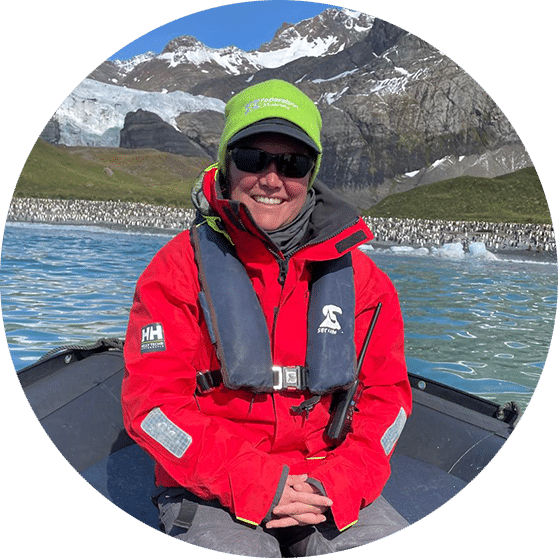
We are thrilled to announce the winning proposals for both the HiFi shotgun metagenomics and Kinnex full-length 16S awards for the 2024 Microbial Genomics SMRT Grant. These innovative proposals were chosen from hundreds of submissions from all around the world. Congratulations to these inspiring scientists leading the future of microbiome and metagenomics research. We are so excited to see what they will accomplish with HiFi sequencing.
Jump to topic:
HiFi shotgun metagenomics Kinnex Full-length 16S
HiFi shotgun metagenomics
Winner

Amanda Shelton, PhD
Research Associate
Bhaya Lab, Division of Biosphere Sciences and Engineering, Carnegie Science, Stanford, CA, USA
Institution’s X handle: @CarnegieScience
LinkedIn: www.linkedin.com/in/amanda-shelton-79b210159
Uncovering host range of viruses and mobile genetic elements underlying population diversity of hot spring microbial communities
Horizontal gene transfer (HGT), activity of mobile genetic elements (MGEs) within genomes, and viral attack are predicted to be drivers of microbial population diversity. Amplicon sequencing and short-read metagenomics of Yellowstone National Park communities revealed extensive HGT and genome rearrangements in the thermophilic cyanobacterium Synechococcus spp. and hinted at similarly high diversity in other species. However, we are limited in our ability to link MGEs and viruses to host species with our current data. Leveraging HiFi long reads coupled with proximity metagenomics will provide unprecedented detail on how these processes contribute to the dynamics and short-term evolution of microbial communities.
This project will also utilize the Phase Genomics ProxiMeta Metagenome Deconvolution Platform in addition to PacBio HiFi metagenome sequencing.
Finalists:

Rodrigo Hernández Velázquez, MSc
PhD candidate
Food Systems Biotechnology group, Institute of Food, Nutrition and Health, ETH Zürich, Zürich, Switzerland
X: @RoyHerVel
LinkedIn: https://www.linkedin.com/in/rodrigo-hern%C3%A1ndez-vel%C3%A1zquez-71464b322/

Annina Meyer, MSc
PhD candidate
Food Systems Biotechnology group, Institute of Food, Nutrition and Health, ETH Zürich, Zürich, Switzerland
X: @anninarmeyer
LinkedIn: https://www.linkedin.com/in/annina-meyer-077a51251/
Discovering novel health-promoting microbial strains from diverse fermented foods
Fermented foods are an untapped source of microorganisms with applications for probiotic and sustainable food production. By generating long-read metagenomes for hundreds of diverse fermented foods in our collection from all around the world, we will be able to accurately reconstruct complete and high-quality metagenome assembled genomes directly from complex fermentations. These genomes will pinpoint specific microbial strains with genes for health-promoting activities (e.g., antinutrient reduction). Furthermore, these genomes will enable metabolic modeling to develop novel microbial consortia that produce unique sensory profiles and health-promoting molecules.
Finalist:

Allison Guitor, PhD
Postdoctoral Researcher
Banfield Lab, University of California, Berkeley & The Innovative Genomics Institute, Berkeley, CA, USA
X: @Assembler_AG
LinkedIn: https://www.linkedin.com/in/allison-guitor/
PacBio reveals megaplasmids in the preterm infant gut microbiome
PacBio HiFi sequencing will revolutionize our understanding of mobile genetic elements (MGEs) in the human gut microbiome. Plasmids and bacteriophages are notoriously difficult to assemble and link to bacterial hosts in complex metagenomes. Our preliminary work with PacBio sequencing has curated complete and previously uncharacterized large plasmids in the preterm infant gut microbiome. Additional long-read sequencing and proximity ligation will increase the diversity of high-quality MGEs recovered from our cohort of preterm infants, identify their microbial hosts, and characterize the functions of these mysterious megaplasmids. Finally, this research will reveal how MGEs shape the development of the microbiome from birth.
Kinnex Full-length 16S
Winner

Meagan Dewar, PhD
Lecturer
Institute of Innovation Science and Sustainability & Future Regions Research Centre, Federation University, Victoria, Australia
X: @DrMeaganDewar; @Wild_Microbes
LinkedIn: https://www.linkedin.com/in/meagan-dewar-a864945
Spatial and temporal changes in microbiota of sub-Antarctic and Antarctic wildlife
This project will use long-read 16S sequencing to build an essential baseline of microbes present in sub-Antarctic and Antarctic wildlife at different stages in the breeding season and locations across the Antarctic peninsula. This baseline data is essential for establishing ongoing disease surveillance in the region to identify novel and emerging pathogens that could threaten the survival of Antarctica’s charismatic wildlife. During the 2023-24 Austral summer, our team collected over 1000 samples from 17 sites across the Antarctic Peninsula from seals and seabirds (including penguins) during early, mid, and late season to identify the presence of avian influenza in the region. This grant provides an opportunity to use the increased accuracy of long-read 16S sequencing to establish a baseline for the microbial community and presence of pathogens at the species level using these samples. This will be the first study to examine changes in the microbiota of Antarctic wildlife at different stages during the breeding season.
Finalist:

Toni Gabaldon, PhD
ICREA Research Professor
Institute for Research in Biomedicine & the Barcelona Supercomputing Centre, Barcelona, Spain
X: @Toni_Gabaldon
LinkedIn: https://www.linkedin.com/in/toni-gabaldon-37b74315/
Characterizing the salivary microbiome in response to nicotine and ethanol exposure
Smoking and alcohol consumption are known factors that alter the oral microbiome and trigger increases of species related to systemic diseases. We have developed an ex-vivo approach to directly test the effect of exposure to compounds such as nicotine in saliva samples. Saliva contains up to 80% of human DNA which makes shotgun approaches expensive, and standard 16S approaches do not provide sufficient resolution at the species level. In this project we will use the full-length 16S approach combined with metabolomics to understand the immediate direct effect of nicotine and ethanol in the oral microbiota.
Finalist:

Nathan Johns, PhD
Postdoctoral Researcher
Fischbach Lab, Department of Bioengineering, Stanford University, Stanford, CA, USA
X: @NathanIJohns
LinkedIn: https://www.linkedin.com/in/nathan-johns-0b757446/
High-throughput identification of enrichment strategies for gut commensal bacteria
Many gut commensal bacterial species have yet to be isolated due to unknown metabolic requirements or low relative abundances, thus limiting our understanding of their roles within microbiomes. I propose combining high-throughput culturing using hundreds of media variations and supplementations with Kinnex 16S rRNA profiling to identify conditions that enrich for uncultivated taxa at depths and phylogenetic resolution greater than short-read profiling allows. From this data we will learn optimal culturing conditions and develop isolation strategies for taxa of interest. Newly isolated strains will then be incorporated into complex synthetic communities in gnotobiotic mice for further study.
How to apply for PacBio grants
The PacBio Grant Program invites researchers across the world to apply for complimentary PacBio sequencing services for a diverse array of genomics research projects.
To participate, choose an active grant program that aligns with your research area and complete the application by explaining how your important work would benefit from PacBio sequencing. Applications are thoroughly reviewed by experts in each application. Selected winners are notified by PacBio to arrange for free sequencing, which can include free consumables, library preparation, and preliminary bioinformatic analyses, all provided by an authorized sequencing service provider (terms and conditions apply).
These grants encompass all life sciences disciplines. Whether you are exploring intricate microbiomes, complex cancer tumors, rare and endangered species, or the uncharted regions of the human genome, there’s a grant that fits your research needs!
Thank you to all participants and thank you to our co-sponsors SeqCenter, Zymo Research, and Phase Genomics for supporting the 2024 PacBio Microbial Genomics SMRT Grant!
